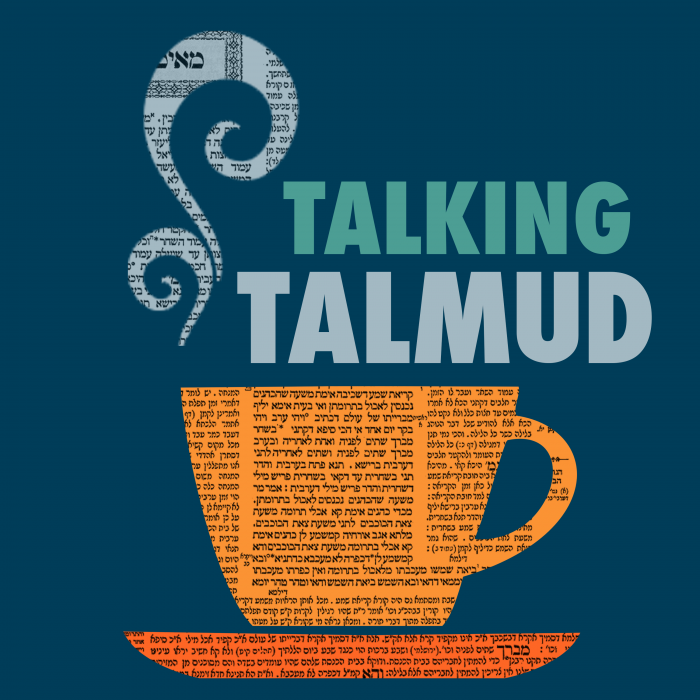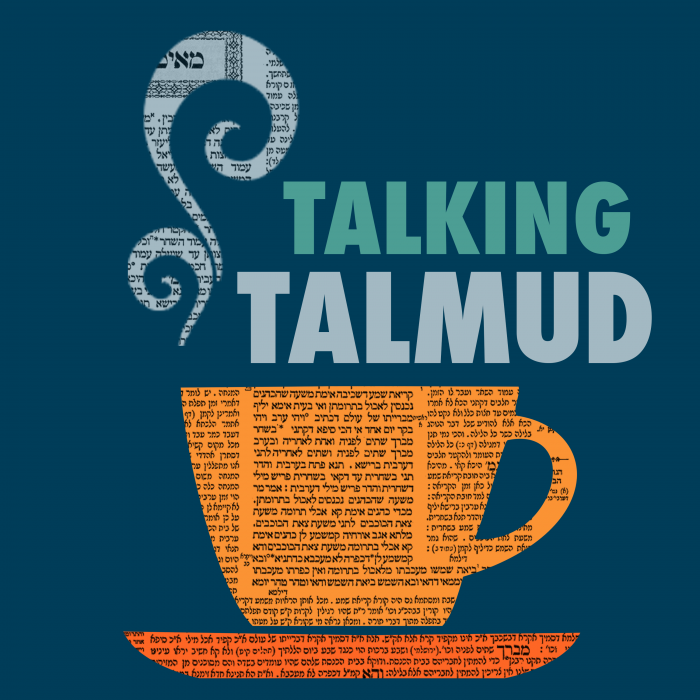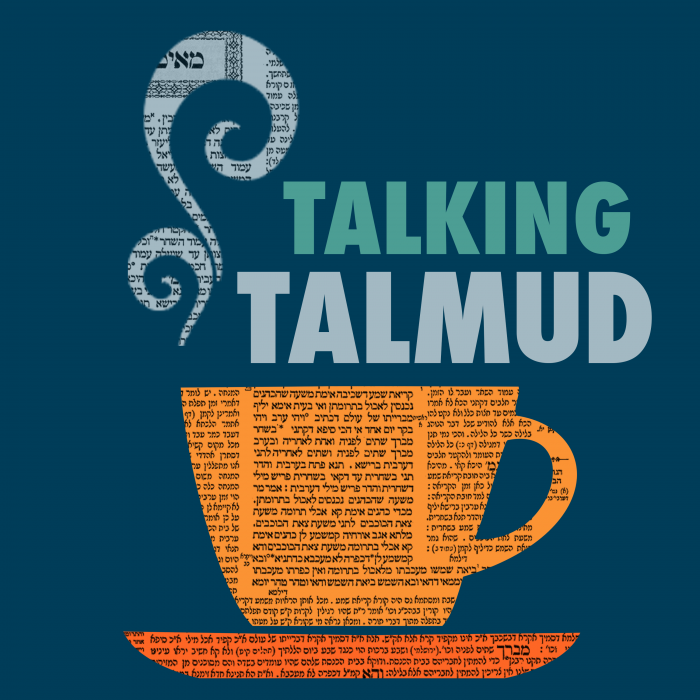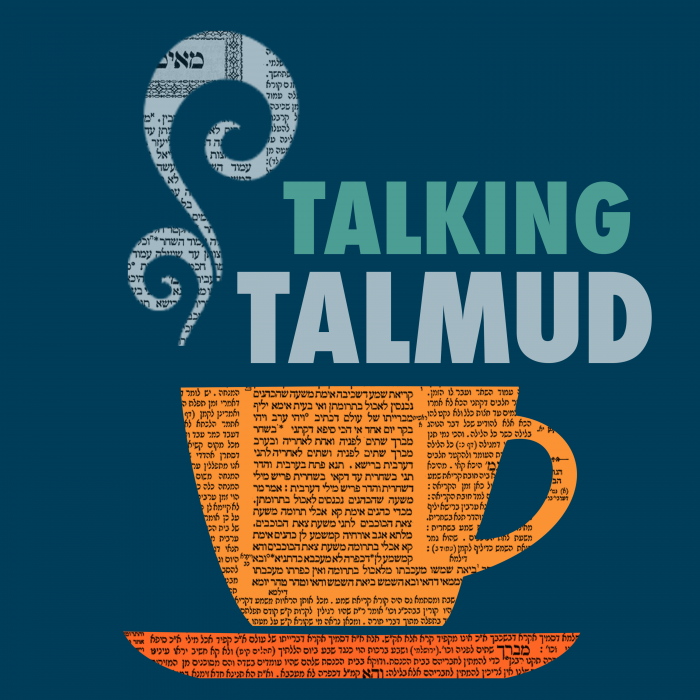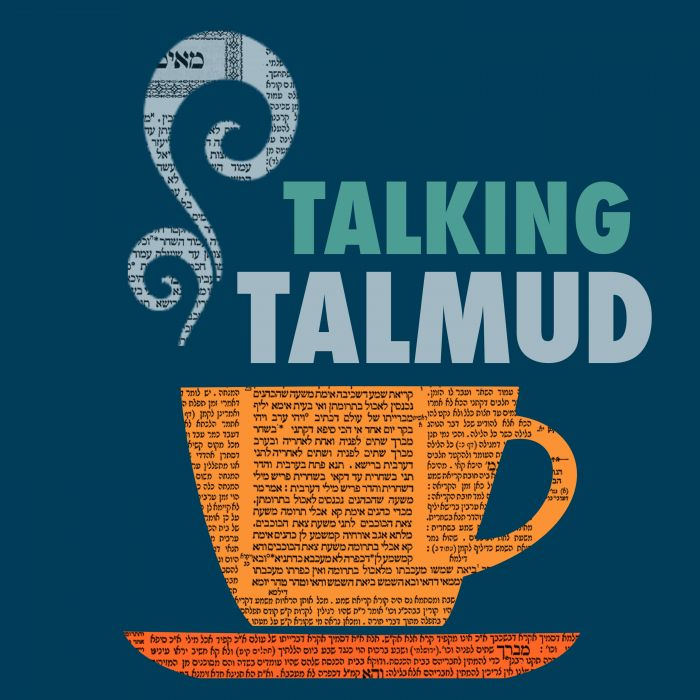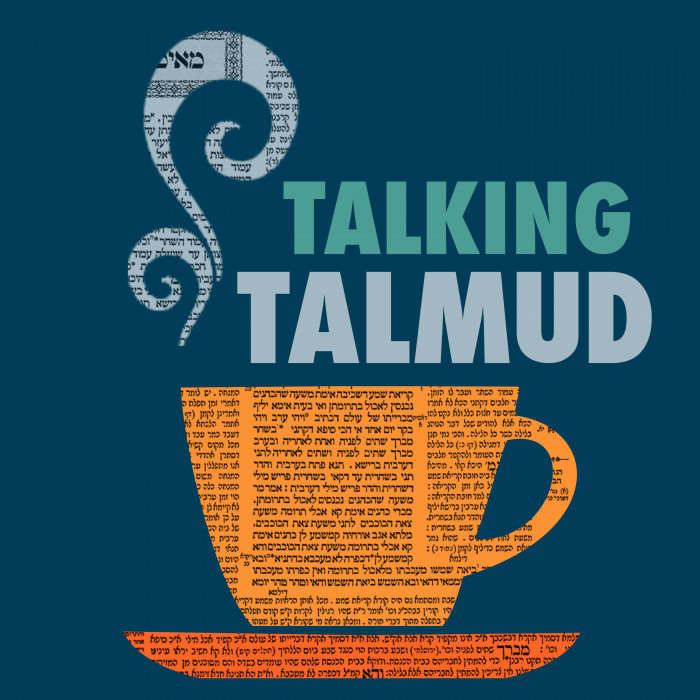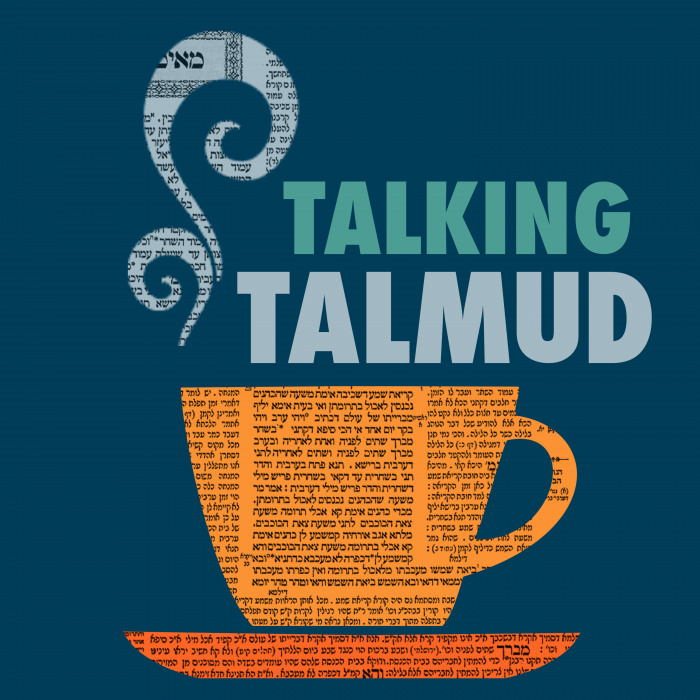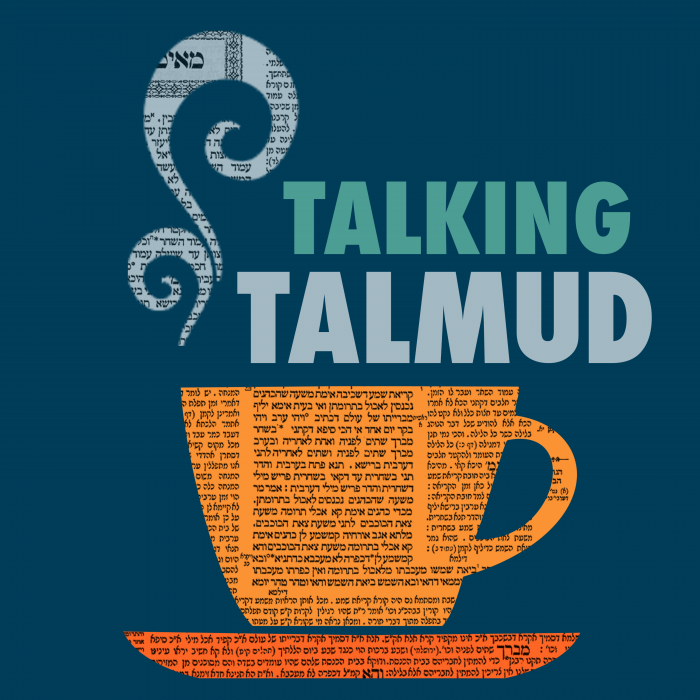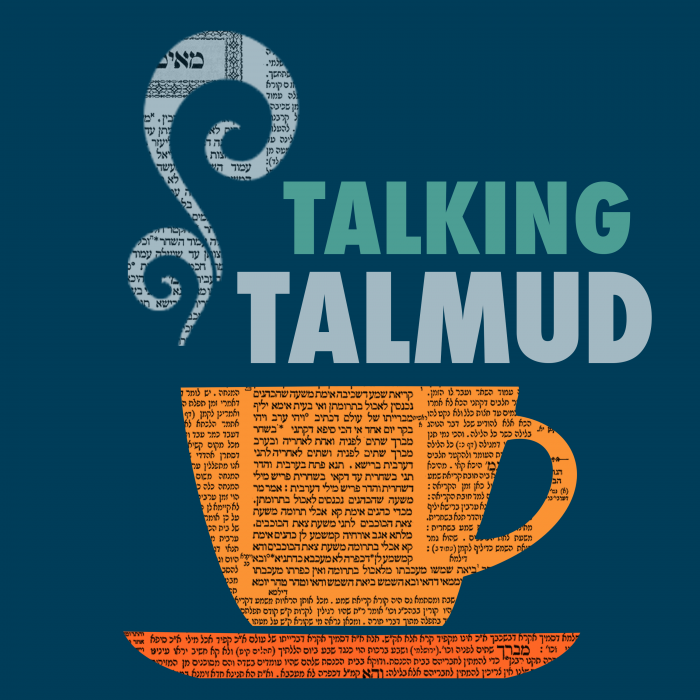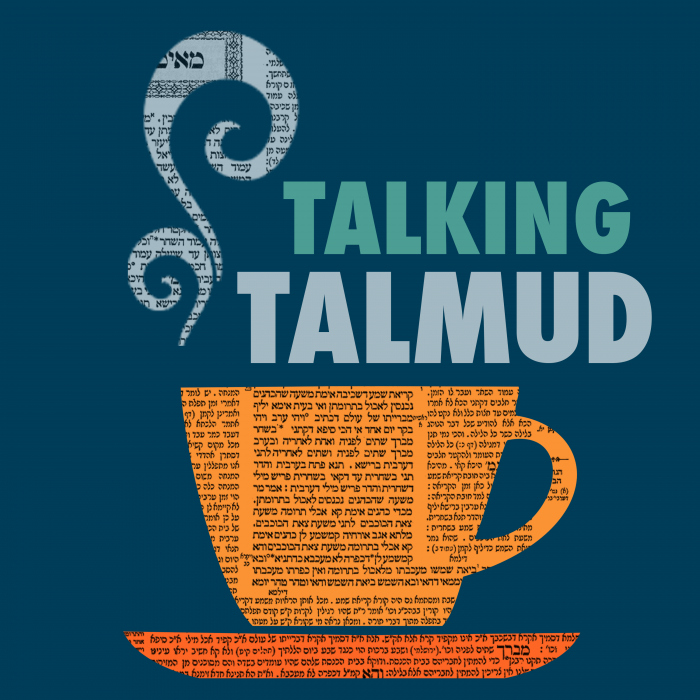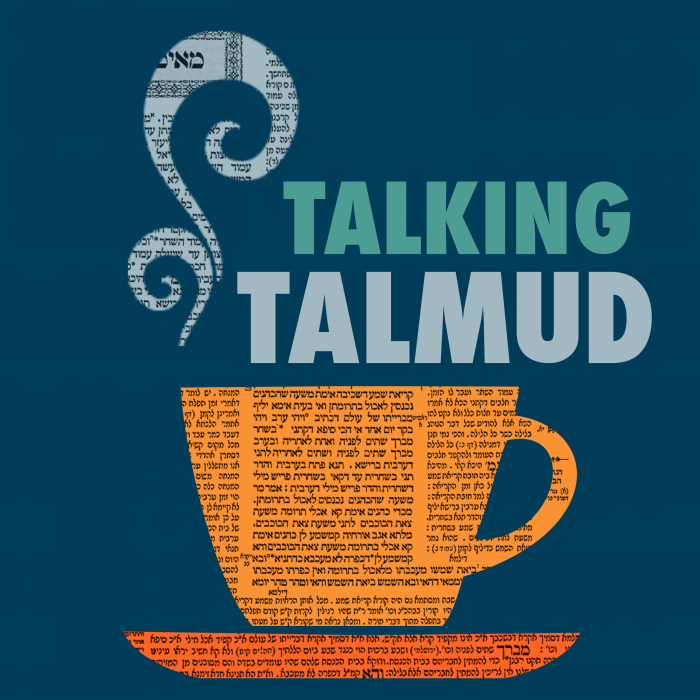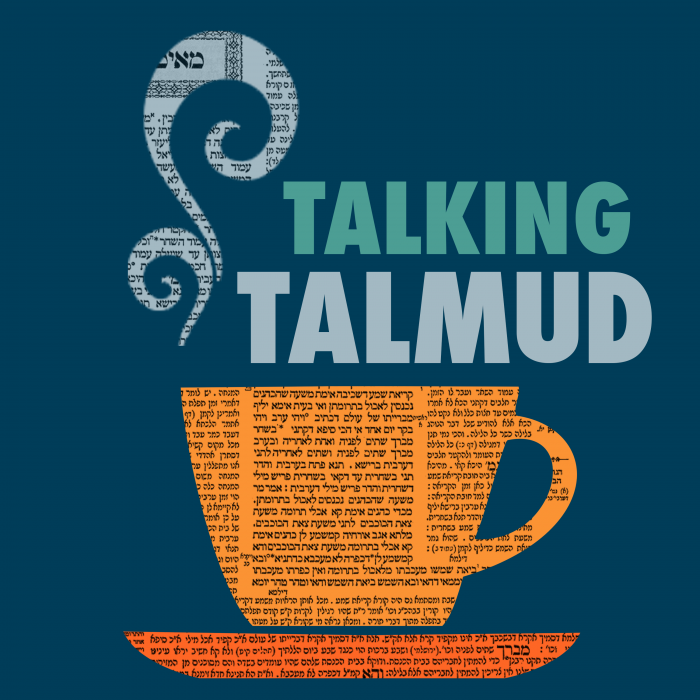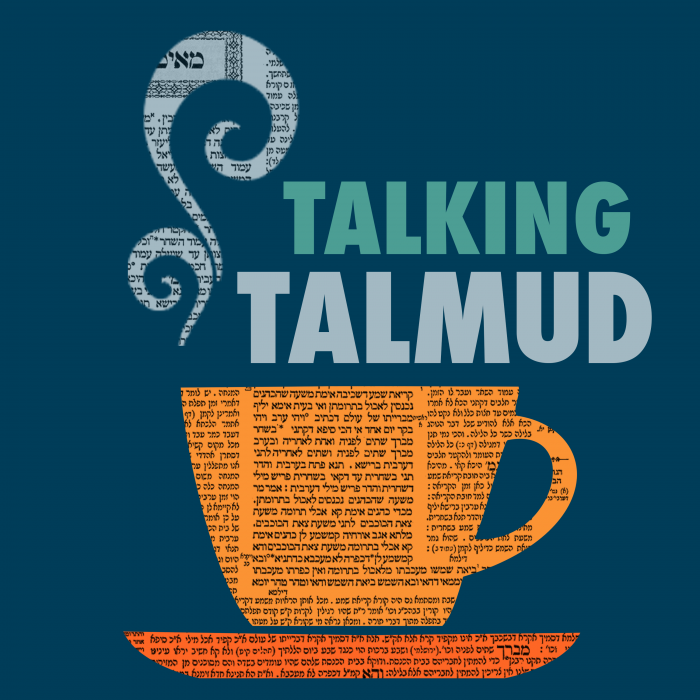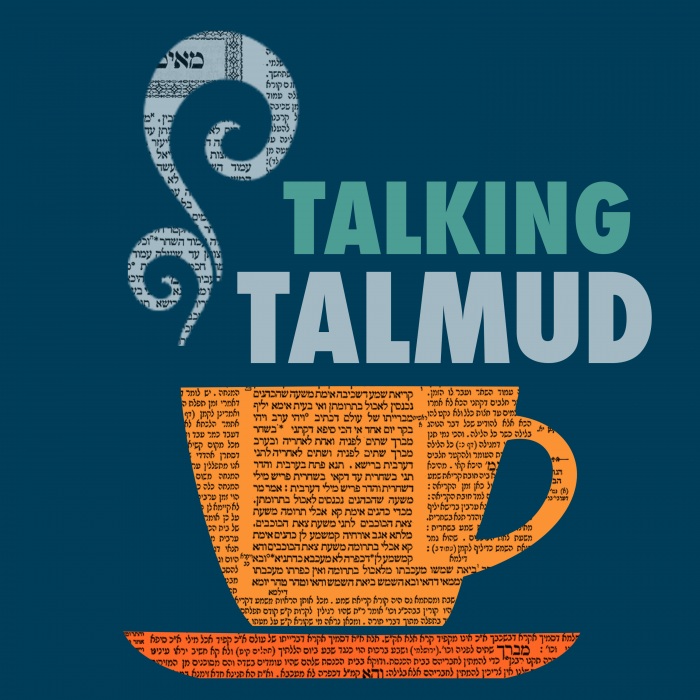What does it mean “until four hours” – until and not including the fourth hour or until and including? Who do we hold like regarding times for the morning prayer and for the afternoon prayer? Can one pray arvit, the nighttime prayer, on Friday afternoon before sunset? And if one does this, is it considered Shabbat for them? If they accidentally accepted Shabbat early, thinking it was nighttime (i.e. gray rainy day), when they realize their mistake, is it Shabbat for them? Is arvit obligatory or optional? Rabban Gamliel and Rabbi Yehoshua disagree regarding this and Rabban Gamliel embarassed Rabbi Yehoshua in the biet midrash because of their disagreement. The people got angry at Rabban Gamliel and removed him from his position of being head of the beit midrash. There was a discussion about whether to replace him with Rabbi Yehoshua, Rabbi Akiva or Rabbi Elazar ben Azaria. The latter was chosen and he went to consult with his wife about whether to take the job.
This month’s learning is dedicated to the refuah shleima of our dear friend, Phyllis Hecht, גיטל פעשא בת מאשה רחל by all her many friends who love and admire her. Phyllis’ emuna, strength, and positivity are an inspiration.
Want to dedicate learning? Get started here:


Today’s daily daf tools:
This month’s learning is dedicated to the refuah shleima of our dear friend, Phyllis Hecht, גיטל פעשא בת מאשה רחל by all her many friends who love and admire her. Phyllis’ emuna, strength, and positivity are an inspiration.
Today’s daily daf tools:
Delve Deeper
Broaden your understanding of the topics on this daf with classes and podcasts from top women Talmud scholars.
New to Talmud?
Check out our resources designed to help you navigate a page of Talmud – and study at the pace, level and style that fits you.
The Hadran Women’s Tapestry
Meet the diverse women learning Gemara at Hadran and hear their stories.
Berakhot 27
הַיְינוּ רַבָּנַן!
is identical to the opinion of the Rabbis, as the end of the period that begins with the midpoint of the afternoon is sunset.
אֶלָּא מַאי, עַד וְלֹא עַד בַּכְּלָל? אֵימָא סֵיפָא: וְשֶׁל מוּסָפִין כׇּל הַיּוֹם. רַבִּי יְהוּדָה אוֹמֵר: עַד שֶׁבַע שָׁעוֹת. וְתַנְיָא: הָיוּ לְפָנָיו שְׁתֵּי תְּפִלּוֹת, אַחַת שֶׁל מוּסָף וְאַחַת שֶׁל מִנְחָה — מִתְפַּלֵּל שֶׁל מִנְחָה וְאַחַר כָּךְ שֶׁל מוּסָף, שֶׁזּוֹ תְּדִירָה, וְזוֹ אֵינָהּ תְּדִירָה. רַבִּי יְהוּדָה אוֹמֵר: מִתְפַּלֵּל שֶׁל מוּסָף וְאַחַר כָּךְ שֶׁל מִנְחָה, שֶׁזּוֹ עוֹבֶרֶת, וְזוֹ אֵינָהּ עוֹבֶרֶת.
The Gemara immediately rejects this proof: Rather, what is the alternative? That until means until and not including? It remains problematic. Say the latter clause of the mishna: The additional prayer may be recited all day. Rabbi Yehuda says: It may be recited until the seven hours. And it was taught in a baraita: If the obligation to recite two prayers was before him, one the additional prayer and one the afternoon prayer, he prays the afternoon prayer first and the additional prayer thereafter, because this, the afternoon prayer, is recited on a frequent basis, and that, the additional prayer, is recited on a relatively infrequent basis as it is only recited on Shabbat, the New Moon, and Festivals. The principle states: When a frequent practice and an infrequent practice clash, the frequent practice takes precedence over the infrequent practice. Rabbi Yehuda says: He recites the additional prayer first and the afternoon prayer thereafter, because the time to recite this, the additional prayer, will soon elapse, and this, the time to recite the afternoon prayer, will not soon elapse, as one may recite it until the midpoint of the afternoon.
אִי אָמְרַתְּ בִּשְׁלָמָא ״עַד וְעַד בַּכְּלָל״, הַיְינוּ דְּמַשְׁכַּחַתְּ לְהוּ שְׁתֵּי תְּפִלּוֹת בַּהֲדֵי הֲדָדֵי. אֶלָּא אִי אָמְרַתְּ ״עַד וְלֹא עַד בַּכְּלָל״, הֵיכִי מַשְׁכַּחַתְּ לְהוּ שְׁתֵּי תְּפִלּוֹת בַּהֲדֵי הֲדָדֵי? כֵּיוָן דְּאָתְיָא לַהּ שֶׁל מִנְחָה, אָזְלָא לַהּ שֶׁל מוּסָפִין!
The relevant point is: Granted, if you say that until means until and including, that is how you can find a situation where the times to recite two prayers, the afternoon prayer and the additional prayer, overlap. But if you say that until means until and not including, and that until seven hours means until the beginning of the seventh hour, noon, then how can you find a situation where the times to recite two prayers overlap? Once the time to recite the afternoon prayer, a half hour past noon, has arrived, the time to recite the additional prayer is already gone?
אֶלָּא מַאי, ״עַד וְעַד בַּכְּלָל״? קַשְׁיָא רֵישָׁא, מַאי אִיכָּא בֵּין רַבִּי יְהוּדָה לְרַבָּנַן?! — מִי סָבְרַתְּ דְּהַאי ״פְּלַג מִנְחָה״ פְּלַג אַחֲרוֹנָה קָאָמַר? פְּלַג רִאשׁוֹנָה קָאָמַר, וְהָכִי קָאָמַר: אֵימַת נָפֵיק פְּלַג רִאשׁוֹנָה וְעָיֵיל פְּלַג אַחֲרוֹנָה — מִכִּי נָפְקִי אַחַת עֶשְׂרֵה שָׁעוֹת חָסֵר רְבִיעַ.
Rather, what is the alternative? That until means until and including? Then the first clause of the mishna is difficult, as explained above with regard to the midpoint of the afternoon: What is the halakhic difference between the opinion of Rabbi Yehuda and the opinion of the Rabbis? The Gemara answers: Do you think that when this midpoint of the afternoon was mentioned it was speaking of the period following the midpoint, the last part of the afternoon, from an hour-and-a-quarter before sunset until sunset? This was not the intention. Rather, it was speaking of the period prior to the midpoint, the first part of the afternoon, which, as explained above, is from nine-and-a-half hours after sunrise until an hour-and-a-quarter before sunset. Consequently, until the midpoint of the afternoon means until the end of the first half of that afternoon period. And this is what he is saying: When does the first half leave and the second half enter? From when eleven hours minus a quarter have passed since sunrise. Rabbi Yehuda’s use of the term until always means until and including.
אָמַר רַב נַחְמָן: אַף אֲנַן נָמֵי תְּנֵינָא.
Practically speaking, this means that, according to Rabbi Yehuda, it is permissible to recite the morning prayer until the end of the fourth hour. In support of this Rav Naḥman said: We, too, learned this in a mishna:
רַבִּי יְהוּדָה בֶּן בָּבָא הֵעִיד חֲמִשָּׁה דְּבָרִים: שֶׁמְמָאֲנִין אֶת הַקְּטַנָּה, וְשֶׁמַּשִּׂיאִין אֶת הָאִשָּׁה עַל פִּי עֵד אֶחָד, וְעַל תַּרְנְגוֹל שֶׁנִּסְקַל בִּירוּשָׁלַיִם עַל שֶׁהָרַג אֶת הַנֶּפֶשׁ, וְעַל יַיִן בֶּן אַרְבָּעִים יוֹם שֶׁנִּתְנַסֵּךְ עַל גַּבֵּי הַמִּזְבֵּחַ, וְעַל תָּמִיד שֶׁל שַׁחַר שֶׁקָּרֵב בְּאַרְבַּע שָׁעוֹת.
Rabbi Yehuda ben Bava testified about five matters of halakha:
When an orphan girl, who was married off by her mother or brother before reaching the age of majority, reaches the age of majority, she may refuse to continue living with her husband and thereby retroactively annul their marriage. Normally, marriage refusals are discouraged. However, in specific instances where it is clear that if the marriage were to remain in effect it would engender problems related to levirate marriage and ḥalitza, Rabbi Yehuda ben Bava testified that one may persuade the minor girl to refuse to continue living with her husband, thereby resolving the complications involved in this case.
And he testified that one may allow a woman who, after hearing of her husband’s death, seeks to remarry, to marry based on the testimony of one witness, as opposed to the two witnesses required for other testimonies of the Torah.
And he testified about a rooster that was stoned to death in Jerusalem for killing a person, in order to teach that the Torah law (Exodus 21:28) which requires the stoning of an ox that killed a person, applies to other animals as well.
And he testified about forty-day-old wine that was used for libation on the altar.
And he testified about the daily morning offering that was sacrificed at four hours of the day.
שְׁמַע מִינַּהּ ״עַד וְעַד בַּכְּלָל״. שְׁמַע מִינַּהּ.
Learn from this final testimony, which is in accordance with the opinion of Rabbi Yehuda, that until means until and including. The Gemara concludes: Indeed, learn from this.
אָמַר רַב כָּהֲנָא: הֲלָכָה כְּרַבִּי יְהוּדָה, הוֹאִיל וּתְנַן בִּבְחִירָתָא כְּווֹתֵיהּ.
Based on this mishna, Rav Kahana said: The halakha is in accordance with the opinion of Rabbi Yehuda since we learned in a mishna in the preferred tractate, Eduyyot, in accordance with his opinion. Since the halakha is ruled in accordance with all of the mishnayot in Eduyyot, the opinion of a tanna who rules in accordance with the opinion of Rabbi Yehuda in that mishna means that the halakha is in accordance with that opinion.
וְעַל תָּמִיד שֶׁל שַׁחַר שֶׁקָּרֵב בְּאַרְבַּע שָׁעוֹת, מַאן תְּנָא לְהָא דִּתְנַן: ״וְחַם הַשֶּׁמֶשׁ וְנָמָס״, בְּאַרְבַּע שָׁעוֹת.
And about the daily morning offering that was sacrificed at four hours. Based on this, the Gemara attempts to identify the tanna who taught that which we learned in the mishna about the manna that fell for the children of Israel in the desert: “And they gathered it morning by morning, each according to what he eats, and when the sun grew hot it melted” (Exodus 16:21); that took place four hours into the day.
אַתָּה אוֹמֵר בְּאַרְבַּע שָׁעוֹת, אוֹ אֵינוֹ אֶלָּא בְּשֵׁשׁ שָׁעוֹת?! כְּשֶׁהוּא אוֹמֵר ״כְּחֹם הַיּוֹם״, הֲרֵי שֵׁשׁ שָׁעוֹת אָמוּר, הָא מָה אֲנִי מְקַיֵּים ״וְחַם הַשֶּׁמֶשׁ וְנָמָס״ — בְּאַרְבַּע שָׁעוֹת. מַנִּי? לָא רַבִּי יְהוּדָה וְלָא רַבָּנַן. אִי רַבִּי יְהוּדָה עַד אַרְבַּע שָׁעוֹת נָמֵי צַפְרָא הוּא! אִי רַבָּנַן — עַד חֲצוֹת נָמֵי צַפְרָא הוּא.
The baraita continues: Do you say that the time when the sun grew hot was at four hours, or perhaps it was only at six hours of the day? When the verse says: “In the heat of the day” (Genesis 18:1), six hours is already mentioned in the Torah as the heat of the day. How, then, do I establish the verse: “And when the sun grew hot it melted”? This must refer to an earlier time, at four hours. The Gemara asks: Who is the tanna of this mishna? It is neither Rabbi Yehuda nor the Sages. If it was in accordance with the opinion of Rabbi Yehuda, until four hours is also considered morning, as he holds that the daily morning offering may still be sacrificed then, while here it says that in the morning the manna was gathered and it melted after the morning. If it was in accordance with the opinion of the Rabbis, until noon is also considered morning, since, according to the Sages, the daily morning offering could be sacrificed until noon. Apparently, this is an entirely new position.
אִי בָּעֵית אֵימָא רַבִּי יְהוּדָה, אִי בָּעֵית אֵימָא רַבָּנַן: אִי בָּעֵית אֵימָא רַבָּנַן: אָמַר קְרָא ״בַּבֹּקֶר בַּבֹּקֶר״ — חַלְּקֵהוּ לִשְׁנֵי בְּקָרִים. וְאִי בָּעֵית אֵימָא רַבִּי יְהוּדָה: הַאי בֹּקֶר יַתִּירָא — לְהַקְדִּים לוֹ שָׁעָה אַחַת. דְּכוּלָּא עָלְמָא מִיהָא ״וְחַם הַשֶּׁמֶשׁ וְנָמָס״ בְּאַרְבַּע שָׁעוֹת.
The Gemara responds: If you wish, say that the mishna is in accordance with the opinion of Rabbi Yehuda, and if you wish, say instead that the mishna is in accordance with the opinion of the Rabbis. The Gemara explains: If you wish, say in accordance with the opinion of the Rabbis. The verse states: Morning by morning, divide it into two mornings. Morning, according to the Rabbis, lasts until noon. The repetition of the term morning in the Torah indicates that the period when the manna was gathered ended at the conclusion of the first half of the morning, i.e., the end of the third hour. And if you wish, say instead in accordance with the opinion of Rabbi Yehuda, who would say that: This extra morning in the phrase morning by morning comes to make the end of the period when the manna was gathered an hour earlier. In any event, everyone agrees that the verse, And when the sun grew hot it melted, refers to four hours of the day.
מַאי מַשְׁמַע? אָמַר רַבִּי אַחָא בַּר יַעֲקֹב: אָמַר קְרָא ״וְחַם הַשֶּׁמֶשׁ וְנָמָס״ — אֵיזוֹ הִיא שָׁעָה שֶׁהַשֶּׁמֶשׁ חַם וְהַצֵּל צוֹנֵן — הֱוֵי אוֹמֵר בְּאַרְבַּע שָׁעוֹת.
The Gemara asks: From where is the inference drawn that this is the meaning of the verse? Rabbi Aḥa bar Ya’akov said: The verse states: “When the sun grew hot it melted.” Which is the hour that the sun is hot but the shade remains cool, before the heat of the day, when even the shade is hot? You must say at four hours.
תְּפִלַּת הַמִּנְחָה עַד הָעֶרֶב וְכוּ׳. אֲמַר לֵיהּ רַב חִסְדָּא לְרַב יִצְחָק: הָתָם אָמַר רַב כָּהֲנָא הֲלָכָה כְּרַבִּי יְהוּדָה, הוֹאִיל וּתְנַן בִּבְחִירָתָא כְּווֹתֵיהּ, הָכָא מַאי? אִישְׁתִּיק וְלָא אֲמַר לֵיהּ וְלָא מִידֵּי. אָמַר רַב חִסְדָּא: נֶחְזֵי אֲנַן, מִדְּרַב מְצַלֵּי שֶׁל שַׁבָּת בְּעֶרֶב שַׁבָּת מִבְּעוֹד יוֹם, שְׁמַע מִינַּהּ הֲלָכָה כְּרַבִּי יְהוּדָה.
We learned in the mishna: The Rabbis hold that the afternoon prayer may be recited until the evening. Rabbi Yehuda says: It may be recited only until the midpoint of the afternoon. Rav Ḥisda said to Rav Yitzḥak: There, with regard to the morning prayer, Rav Kahana said: The halakha is in accordance with the opinion of Rabbi Yehuda, since we learned in a mishna in the preferred tractate, Eduyyot, in accordance with his opinion. Here, what is the ruling? He was silent and said nothing to him, as he was familiar with no established ruling in this matter. Rav Ḥisda said: Let us see and try to resolve this ourselves from the fact that Rav prayed the Shabbat prayers on the eve of Shabbat while it was still day. Learn from this that the halakha is in accordance with the opinion of Rabbi Yehuda, and the time for the afternoon prayer ends at the midpoint of the afternoon, after which time one may recite the evening prayer.
אַדְּרַבָּה מִדְּרַב הוּנָא וְרַבָּנַן לָא הֲווֹ מְצַלּוּ עַד אוּרְתָּא, שְׁמַע מִינַּהּ אֵין הֲלָכָה כְּרַבִּי יְהוּדָה. הַשְׁתָּא דְּלָא אִתְּמַר הִלְכְתָא לָא כְּמָר וְלָא כְּמָר, דַּעֲבַד כְּמָר — עֲבַד, וְדַעֲבַד כְּמָר — עֲבַד.
The Gemara immediately rejects the proof based on Rav’s practice: On the contrary, from the fact that Rav Huna and the Sages, students of Rav, would not pray until evening, learn from that that the halakha is not in accordance with the opinion of Rabbi Yehuda. The Gemara concludes: Now that the halakha was stated neither in accordance with the opinion of this Sage nor in accordance with the opinion of that Sage, one who acted in accordance with the opinion of this Sage has acted legitimately, and one who acted in accordance with the opinion of that Sage has acted legitimately, as this halakha is left to the decision of each individual.
רַב אִיקְּלַע לְבֵי גְּנִיבָא וְצַלִּי שֶׁל שַׁבָּת בְּעֶרֶב שַׁבָּת, וַהֲוָה מְצַלֵּי רַבִּי יִרְמְיָה בַּר אַבָּא לַאֲחוֹרֵי דְרַב, וְסַיֵּים רַב וְלָא פַּסְקֵיהּ לִצְלוֹתֵיהּ דְּרַבִּי יִרְמְיָה. שְׁמַע מִינַּהּ תְּלָת: שְׁמַע מִינַּהּ מִתְפַּלֵּל אָדָם שֶׁל שַׁבָּת בְּעֶרֶב שַׁבָּת. וּשְׁמַע מִינַּהּ מִתְפַּלֵּל תַּלְמִיד אֲחוֹרֵי רַבּוֹ. וּשְׁמַע מִינַּהּ אָסוּר לַעֲבוֹר כְּנֶגֶד הַמִּתְפַּלְּלִין.
The Gemara relates: Rav happened by the house of the Sage, Geniva, and he prayed the Shabbat prayer on the eve of Shabbat before nightfall. Rabbi Yirmeya bar Abba was praying behind Rav, and Rav finished his prayer but did not take three steps back and interrupt the prayer of Rabbi Yirmeya. Derive from this incident three halakhot: Derive from this that one may pray the Shabbat prayer on the eve of Shabbat before nightfall. And derive from this that a student may pray behind his rabbi. And derive from this that it is prohibited to pass before those who are praying.
מְסַיַּיע לֵיהּ לְרַבִּי יְהוֹשֻׁעַ בֶּן לֵוִי. דְּאָמַר רַבִּי יְהוֹשֻׁעַ בֶּן לֵוִי: אָסוּר לַעֲבוֹר כְּנֶגֶד הַמִּתְפַּלְּלִין. אִינִי?! וְהָא רַבִּי אַמֵּי וְרַבִּי אַסִּי חָלְפִי. רַבִּי אַמֵּי וְרַבִּי אַסִּי — חוּץ לְאַרְבַּע אַמּוֹת הוּא דְּחָלְפִי.
The Gemara responds: This supports the opinion of Rabbi Yehoshua ben Levi, as Rabbi Yehoshua ben Levi said: It is prohibited to pass before those who are praying. The Gemara asks: Is that so? Didn’t Rabbi Ami and Rabbi Asi pass before those who were praying? The Gemara responds: Rabbi Ami and Rabbi Asi were beyond four cubits from those who were praying when they passed.
וְרַבִּי יִרְמְיָה הֵיכִי עָבֵיד הָכִי?! וְהָא אָמַר רַב יְהוּדָה אָמַר רַב: לְעוֹלָם אַל יִתְפַּלֵּל אָדָם
One particular detail was surprising: How did Rabbi Yirmeya act that way and pray behind Rav? Didn’t Rav Yehuda say that Rav said: A person should never pray
לֹא כְּנֶגֶד רַבּוֹ, וְלֹא אֲחוֹרֵי רַבּוֹ.
directly next to his rabbi, presumptuously indicating that he is his rabbi’s equal, and behind his rabbi as it creates the impression that he is bowing to him (Tosafot)?
וְתַנְיָא, רַבִּי אֱלִיעֶזֶר אוֹמֵר: הַמִּתְפַּלֵּל אֲחוֹרֵי רַבּוֹ, וְהַנּוֹתֵן שָׁלוֹם לְרַבּוֹ, וְהַמַּחֲזִיר שָׁלוֹם לְרַבּוֹ, וְהַחוֹלֵק עַל יְשִׁיבָתוֹ שֶׁל רַבּוֹ, וְהָאוֹמֵר דָּבָר שֶׁלֹּא שָׁמַע מִפִּי רַבּוֹ — גּוֹרֵם לַשְּׁכִינָה שֶׁתִּסְתַּלֵּק מִיִּשְׂרָאֵל!
And it was taught in a baraita, in a more extreme manner, as Rabbi Eliezer says: One who prays behind his rabbi and one who greets his rabbi without waiting for his rabbi to greet him first, one who returns his rabbi’s greeting without saying: Greetings to you, rabbi, one who rivals his rabbi’s yeshiva, i.e., establishes a yeshiva of his own and teaches during his rabbi’s lifetime without his consent (Rambam), and one who says something in the name of his rabbi which he did not hear directly from his rabbi, causes the Divine Presence to withdraw from Israel.
שָׁאנֵי רַבִּי יִרְמְיָה בַּר אַבָּא דְּתַלְמִיד חָבֵר הֲוָה. וְהַיְינוּ דְּקָאָמַר לֵיהּ רַבִּי יִרְמְיָה בַּר אַבָּא לְרַב: מִי בְּדַלְתְּ? אָמַר לֵיהּ: אִין, בְּדֵילְנָא, וְלָא אֲמַר ״מִי בְּדֵיל מָר״?
With regard to Rabbi Yirmeya’s conduct, the Gemara explains that Rabbi Yirmeya bar Abba is different, as he was not a mere student of Rav. Rather, he was a disciple-colleague and was, therefore, permitted to act that way. And that is why on one occasion, when Rav prayed the Shabbat prayer early, Rabbi Yirmeya bar Abba asked him: Did you distance yourself from labor and accept the sanctity of Shabbat? Rav said to him: Yes, I distanced myself. And Rabbi Yirmeya did not say to him: Did the Master distance himself, as would have been appropriate had he merely been Rav’s student.
וּמִי בְּדֵיל? וְהָאָמַר רַבִּי אָבִין: פַּעַם אַחַת הִתְפַּלֵּל רַבִּי שֶׁל שַׁבָּת בְּעֶרֶב שַׁבָּת, וְנִכְנַס לַמֶּרְחָץ, וְיָצָא וְשָׁנָה לַן פִּרְקִין, וַעֲדַיִין לֹא חָשְׁכָה! אָמַר רָבָא: הָהוּא דְּנִכְנַס לְהַזִּיעַ, וְקוֹדֶם גְּזֵירָה הֲוָה.
Although Rav replied that he distanced himself from labor, did he indeed need to distance himself from labor? Didn’t Rabbi Avin say: Once Rabbi Yehuda HaNasi prayed the Shabbat prayer on the eve of Shabbat before nightfall. He then entered the bathhouse and emerged and taught us our chapters that we had learned, and it was not yet dark. Rava said: That is a case where he had entered the bathhouse to perspire, and it was before the Sages issued a decree prohibiting perspiring in a bathhouse on Shabbat.
אִינִי, וְהָא אַבָּיֵי שְׁרָא לֵיהּ לְרַב דִּימִי בַּר לֵיוַאי לְכַבְרוֹיֵי סַלֵּי!
The Gemara asks: Is that so, that he was required to refrain from labor? Didn’t Abaye permit Rav Dimi bar Liva’ei to fumigate baskets with sulfur even though he had already recited the Shabbat prayer, indicating that it is permitted to perform labor even after the Shabbat prayer?
הַהוּא טָעוּתָא הֲוַאי.
The Gemara responds: That was an error, as Rav Dimi did not intend to begin Shabbat early. It was a cloudy day and he mistakenly thought that the sun had set and that was why he prayed. Consequently, even though he prayed, the Shabbat prayer did not obligate him to conduct himself in accordance with the sanctity of Shabbat and he was allowed to perform labor even after his prayer.
וְטָעוּתָא מִי הָדְרָא? וְהָא אָמַר אֲבִידָן: פַּעַם אַחַת נִתְקַשְּׁרוּ שָׁמַיִם בֶּעָבִים, כִּסְבוּרִים הָעָם לוֹמַר חֲשֵׁכָה הוּא, נִכְנְסוּ לְבֵית הַכְּנֶסֶת וְהִתְפַּלְּלוּ שֶׁל מוֹצָאֵי שַׁבָּת בְּשַׁבָּת. וְנִתְפַּזְּרוּ הֶעָבִים וְזָרְחָה הַחַמָּה,
The Gemara goes on to ask: Can a mistake be reversed, enabling one to conduct himself as if he had not prayed? Didn’t Avidan, a student of Rabbi Yehuda HaNasi, say: Once the sky became overcast, leading the people to think that it was the dark of night; they entered the synagogue and recited the evening prayer of the conclusion of Shabbat on Shabbat. And later, the clouds cleared and the sun shone, indicating that it was still day.
וּבָאוּ וְשָׁאֲלוּ אֶת רַבִּי. וְאָמַר: הוֹאִיל וְהִתְפַּלְּלוּ — הִתְפַּלְּלוּ! שָׁאנֵי צִבּוּר, דְּלָא מַטְרְחִינַן לְהוּ.
And they came and asked Rabbi Yehuda HaNasi what they should do, and he said: Since they have prayed, they have prayed, and they need not pray again. Although they prayed erroneously, their mistake is not reversible and what was done remains. The Gemara responds: A community is different in that we do not burden them to pray again.
אָמַר רַבִּי חִיָּיא בַּר אָבִין: רַב צַלִּי שֶׁל שַׁבָּת בְּעֶרֶב שַׁבָּת, רַבִּי יֹאשִׁיָּה מְצַלֵּי שֶׁל מוֹצָאֵי שַׁבָּת בְּשַׁבָּת. רַב צַלִּי שֶׁל שַׁבָּת בְּעֶרֶב שַׁבָּת: אוֹמֵר קְדוּשָּׁה עַל הַכּוֹס, אוֹ אֵינוֹ אוֹמֵר קְדוּשָּׁה עַל הַכּוֹס? תָּא שְׁמַע דְּאָמַר רַב נַחְמָן אָמַר שְׁמוּאֵל: מִתְפַּלֵּל אָדָם שֶׁל שַׁבָּת בְּעֶרֶב שַׁבָּת וְאוֹמֵר קְדוּשָּׁה עַל הַכּוֹס. וְהִלְכְתָא כְּווֹתֵיהּ.
The Gemara continues to discuss the possibility of reciting the evening prayer early, even on Shabbat. Rabbi Ḥiyya bar Avin said: Rav prayed the Shabbat prayer on the eve of Shabbat before nightfall. Rabbi Yoshiya would pray the evening prayer of the conclusion of Shabbat on Shabbat. With regard to the fact that Rav prayed the Shabbat prayer on the eve of Shabbat before nightfall, the dilemma is raised: In those cases, did he recite kiddush over the cup of wine, or did he not recite kiddush over the cup of wine before the stars emerged? Come and hear a resolution to this, as Rav Naḥman said that Shmuel said: One prays the Shabbat prayer on the eve of Shabbat before nightfall and recites kiddush over the cup of wine. And the halakha is in accordance with his ruling.
רַבִּי יֹאשִׁיָּה מְצַלֵּי שֶׁל מוֹצָאֵי שַׁבָּת בְּשַׁבָּת: אוֹמֵר הַבְדָּלָה עַל הַכּוֹס אוֹ אֵינוֹ אוֹמֵר הַבְדָּלָה עַל הַכּוֹס? תָּא שְׁמַע דְּאָמַר רַב יְהוּדָה אָמַר שְׁמוּאֵל: מִתְפַּלֵּל אָדָם שֶׁל מוֹצָאֵי שַׁבָּת בְּשַׁבָּת וְאוֹמֵר הַבְדָּלָה עַל הַכּוֹס.
A similar dilemma was raised concerning the fact that Rabbi Yoshiya would pray the evening prayer of the conclusion of Shabbat on Shabbat: After praying, while it is still Shabbat, does he recite havdala over the cup of wine or does one not recite havdala over the cup of wine? Come and hear a resolution to this, as Rav Yehuda said that Shmuel said: One prays the evening prayer of the conclusion of Shabbat on Shabbat and recites havdala over the cup of wine.
אָמַר רַבִּי זֵירָא אָמַר רַבִּי אַסִּי אָמַר רַבִּי אֶלְעָזָר אָמַר רַבִּי חֲנִינָא אָמַר רַב: בְּצַד עַמּוּד זֶה הִתְפַּלֵּל רַבִּי יִשְׁמָעֵאל בְּרַבִּי יוֹסֵי שֶׁל שַׁבָּת בְּעֶרֶב שַׁבָּת
Rabbi Zeira said that Rabbi Asi said that Rabbi Elazar said that Rabbi Ḥanina said that Rav said: Alongside this specific pillar before me, Rabbi Yishmael, son of Rabbi Yosei, prayed the Shabbat prayer on the eve of Shabbat before nightfall.
כִּי אֲתָא עוּלָּא אָמַר: בְּצַד תְּמָרָה הֲוָה, וְלֹא בְּצַד עַמּוּד הֲוָה. וְלֹא רַבִּי יִשְׁמָעֵאל בְּרַבִּי יוֹסֵי הֲוָה, אֶלָּא רַבִּי אֶלְעָזָר בְּרַבִּי יוֹסֵי הֲוָה, וְלֹא שֶׁל שַׁבָּת בְּעֶרֶב שַׁבָּת הֲוָה, אֶלָּא שֶׁל מוֹצָאֵי שַׁבָּת בְּשַׁבָּת הֲוָה.
But when Ulla came from the Eretz Yisrael to Babylonia, he related a different version of this story. He said that he had heard: This transpired beside a palm tree, not beside a pillar, and it was not Rabbi Yishmael, son of Rabbi Yosei, but it was Rabbi Elazar, son of Rabbi Yosei, and it was not the Shabbat prayer on Shabbat eve before nightfall, rather it was the prayer of the conclusion of Shabbat on Shabbat.
תְּפִלַּת הָעֶרֶב אֵין לָהּ קֶבַע. מַאי אֵין לָהּ קֶבַע? אִילֵּימָא דְּאִי בָּעֵי מְצַלֵּי כּוּלֵּיהּ לֵילְיָא, לִיתְנֵי ״תְּפִלַּת הָעֶרֶב כׇּל הַלַּיְלָה״! אֶלָּא מַאי אֵין לָהּ קֶבַע —
We learned in the mishna: The evening prayer may be recited throughout the night and is not fixed to a specific hour. The Gemara asks: What is the meaning of is not fixed? If you say that if one wishes, he may pray throughout the night, then let the mishna teach: The evening prayer may be recited throughout the night. Rather, what is the meaning of not fixed?
כְּמַאן דְּאָמַר, תְּפִלַּת עַרְבִית רְשׁוּת. דְּאָמַר רַב יְהוּדָה אָמַר שְׁמוּאֵל: תְּפִלַּת עַרְבִית: רַבָּן גַּמְלִיאֵל אוֹמֵר חוֹבָה, רַבִּי יְהוֹשֻׁעַ אוֹמֵר רְשׁוּת. אָמַר אַבָּיֵי: הֲלָכָה כְּדִבְרֵי הָאוֹמֵר חוֹבָה. וְרָבָא אָמַר: הֲלָכָה כְּדִבְרֵי הָאוֹמֵר רְשׁוּת.
It is in accordance with the opinion of the one who said: The evening prayer is optional. As Rav Yehuda said that Shmuel said with regard to the evening prayer. Rabban Gamliel says: It is obligatory. Rabbi Yehoshua says: It is optional. Abaye said: The halakha is in accordance with the statement of the one who said: The evening prayer is obligatory. Rava said: The halakha is in accordance with the statement of the one who said: The evening prayer is optional.
תָּנוּ רַבָּנַן: מַעֲשֶׂה בְּתַלְמִיד אֶחָד שֶׁבָּא לִפְנֵי רַבִּי יְהוֹשֻׁעַ. אָמַר לוֹ: תְּפִלַּת עַרְבִית רְשׁוּת אוֹ חוֹבָה? אָמַר לֵיהּ: רְשׁוּת.
The Sages taught: There was an incident involving a student, who came before Rabbi Yehoshua. The student said to him: Is the evening prayer optional or obligatory? Rabbi Yehoshua said to him: Optional.
בָּא לִפְנֵי רַבָּן גַּמְלִיאֵל, אָמַר לוֹ: תְּפִלַּת עַרְבִית רְשׁוּת אוֹ חוֹבָה? אָמַר לוֹ: חוֹבָה. אָמַר לוֹ: וַהֲלֹא רַבִּי יְהוֹשֻׁעַ אָמַר לִי רְשׁוּת?! אָמַר לוֹ: הַמְתֵּן עַד שֶׁיִּכָּנְסוּ בַּעֲלֵי תְּרִיסִין לְבֵית הַמִּדְרָשׁ.
The same student came before Rabban Gamliel and said to him: Is the evening prayer optional or obligatory? Rabban Gamliel said to him: Obligatory. The student said to Rabban Gamliel: But didn’t Rabbi Yehoshua tell me that the evening prayer is optional? Rabban Gamliel said to the student: Wait until the “masters of the shields,” a reference to the Torah scholars who battle in the war of Torah, enter the study hall, at which point we will discuss this issue.
כְּשֶׁנִּכְנְסוּ בַּעֲלֵי תְּרִיסִין, עָמַד הַשּׁוֹאֵל וְשָׁאַל: תְּפִלַּת עַרְבִית רְשׁוּת אוֹ חוֹבָה? אָמַר לוֹ רַבָּן גַּמְלִיאֵל: חוֹבָה. אָמַר לָהֶם רַבָּן גַּמְלִיאֵל לַחֲכָמִים: כְּלוּם יֵשׁ אָדָם שֶׁחוֹלֵק בְּדָבָר זֶה? אָמַר לֵיהּ רַבִּי יְהוֹשֻׁעַ: לָאו. אָמַר לוֹ: וַהֲלֹא מִשִּׁמְךָ אָמְרוּ לִי רְשׁוּת!
When the masters of the shields entered, the questioner stood before everyone present and asked: Is the evening prayer optional or obligatory? Rabban Gamliel said to him: Obligatory. In order to ascertain whether or not Rabbi Yehoshua still maintained his opinion, Rabban Gamliel said to the Sages: Is there any person who disputes this matter? Rabbi Yehoshua said to him: No, no one disagrees. In deference to the Nasi, he did not wish to argue with him publicly (Tziyyun LeNefesh Ḥayya). Rabban Gamliel said to Rabbi Yehoshua: But was it not in your name that they told me that the evening prayer is optional?
אָמַר לֵיהּ: יְהוֹשֻׁעַ, עֲמוֹד עַל רַגְלֶיךָ וְיָעִידוּ בְּךָ. עָמַד רַבִּי יְהוֹשֻׁעַ עַל רַגְלָיו וְאָמַר אִלְמָלֵא אֲנִי חַי וְהוּא מֵת — יָכוֹל הַחַי לְהַכְחִישׁ אֶת הַמֵּת. וְעַכְשָׁיו שֶׁאֲנִי חַי וְהוּא חַי — הֵיאַךְ יָכוֹל הַחַי לְהַכְחִישׁ אֶת הַחַי?
Rabban Gamliel said to Rabbi Yehoshua: Yehoshua, stand on your feet and they will testify against you. Rabbi Yehoshua stood on his feet and said: If I were alive and the student were dead, the living can contradict the dead, and I could deny issuing that ruling. Now that I am alive and he is alive, how can the living contradict the living? I have no choice but to admit that I said it.
הָיָה רַבָּן גַּמְלִיאֵל יוֹשֵׁב וְדוֹרֵשׁ וְרַבִּי יְהוֹשֻׁעַ עוֹמֵד עַל רַגְלָיו, עַד שֶׁרִנְּנוּ כׇּל הָעָם וְאָמְרוּ לְחוּצְפִּית הַתּוּרְגְּמָן: עֲמוֹד! וְעָמַד.
In the meantime, Rabban Gamliel, as the Nasi, was sitting and lecturing, and Rabbi Yehoshua all the while was standing on his feet, because Rabban Gamliel did not instruct him to sit. He remained standing in deference to the Nasi. This continued for some time, until it aroused great resentment against Rabban Gamliel, and all of the people assembled began murmuring and said to Ḥutzpit the disseminator: Stop conveying Rabban Gamliel’s lecture. And he stopped.
אָמְרִי: עַד כַּמָּה נְצַעֲרֵיהּ וְנֵיזִיל, בְּרֹאשׁ הַשָּׁנָה אֶשְׁתָּקַד צַעֲרֵיהּ. בִּבְכוֹרוֹת בְּמַעֲשֵׂה דְרַבִּי צָדוֹק צַעֲרֵיהּ. הָכָא נָמֵי צַעֲרֵיהּ, תָּא וְנַעְבְּרֵיהּ!
The Gemara relates that in their murmuring they said: How long will Rabban Gamliel continue afflicting him? Last year on Rosh HaShana, he afflicted him; Rabban Gamliel ordered Rabbi Yehoshua to come to him carrying his staff and bag, on the day on which Yom Kippur occurred, according to Rabbi Yehoshua’s calculations. Regarding the firstborn, in the incident involving the question of Rabbi Tzadok, he afflicted him just as he did now, and forced him to remain standing as punishment for his failure to defend his differing opinion. Here too, he is afflicting him. Let us remove him from his position as Nasi.
מַאן נוֹקֵים לֵיהּ? נוֹקְמֵיהּ לְרַבִּי יְהוֹשֻׁעַ — בַּעַל מַעֲשֶׂה הוּא. נוֹקְמֵיהּ לְרַבִּי עֲקִיבָא — דִּילְמָא עָנֵישׁ לֵיהּ, דְּלֵית לֵיהּ זְכוּת אָבוֹת.
It was so agreed, but the question arose: Whom shall we establish in his place? Shall we establish Rabbi Yehoshua in his place? The Sages rejected that option because Rabbi Yehoshua was party to the incident for which Rabban Gamliel was deposed. Appointing him would be extremely upsetting for Rabban Gamliel. Shall we establish Rabbi Akiva in his place? The Sages rejected that option because Rabbi Akiva, who descended from a family of converts, would be vulnerable. Perhaps due to Rabban Gamliel’s resentment he would cause him to be divinely punished as he lacks the merit of his ancestors to protect him.
אֶלָּא נוֹקְמֵיהּ לְרַבִּי אֶלְעָזָר בֶּן עֲזַרְיָה, דְּהוּא חָכָם, וְהוּא עָשִׁיר, וְהוּא עֲשִׂירִי לְעֶזְרָא. הוּא חָכָם — דְּאִי מַקְשֵׁי לֵיהּ, מְפָרֵק לֵיהּ. וְהוּא עָשִׁיר — דְּאִי אִית לֵיהּ לְפַלּוֹחֵי לְבֵי קֵיסָר, אַף הוּא אָזֵל וּפָלַח. וְהוּא עֲשִׂירִי לְעֶזְרָא — דְּאִית לֵיהּ זְכוּת אָבוֹת, וְלָא מָצֵי עָנֵישׁ לֵיהּ. אֲתוֹ וַאֲמַרוּ לֵיהּ: נִיחָא לֵיהּ לְמָר דְּלֶיהְוֵי רֵישׁ מְתִיבְתָּא? אֲמַר לְהוּ: אֵיזִיל וְאִימְּלִיךְ בְּאִינָשֵׁי בֵּיתִי. אֲזַל וְאִמְּלִיךְ בִּדְבֵיתְהוּ. אֲמַרָה לֵיהּ:
Rather, suggested the Sages, let us establish Rabbi Elazar ben Azarya in his place, his outstanding characteristics set him apart from the other candidates. He is wise, rich, and a tenth generation descendant of Ezra. The Gemara explains: He is wise, so if Rabban Gamliel raises a challenge in matters of Torah, he will answer it and not be embarrassed. And he is rich, so if the need arises to pay homage to the Caesar’s court and serve as a representative of Israel to lobby and negotiate, he has sufficient wealth to cover the costs of the long journeys, taxes, and gifts, so he too is able to go and pay homage. And he is a tenth generation descendant of Ezra, so he has the merit of his ancestors, and Rabban Gamliel will be unable to cause him to be punished. They came and said to him: Would the Master consent to being the Head of the Yeshiva? He said to them: I will go and consult with my household. He went and consulted with his wife. She said to him:



